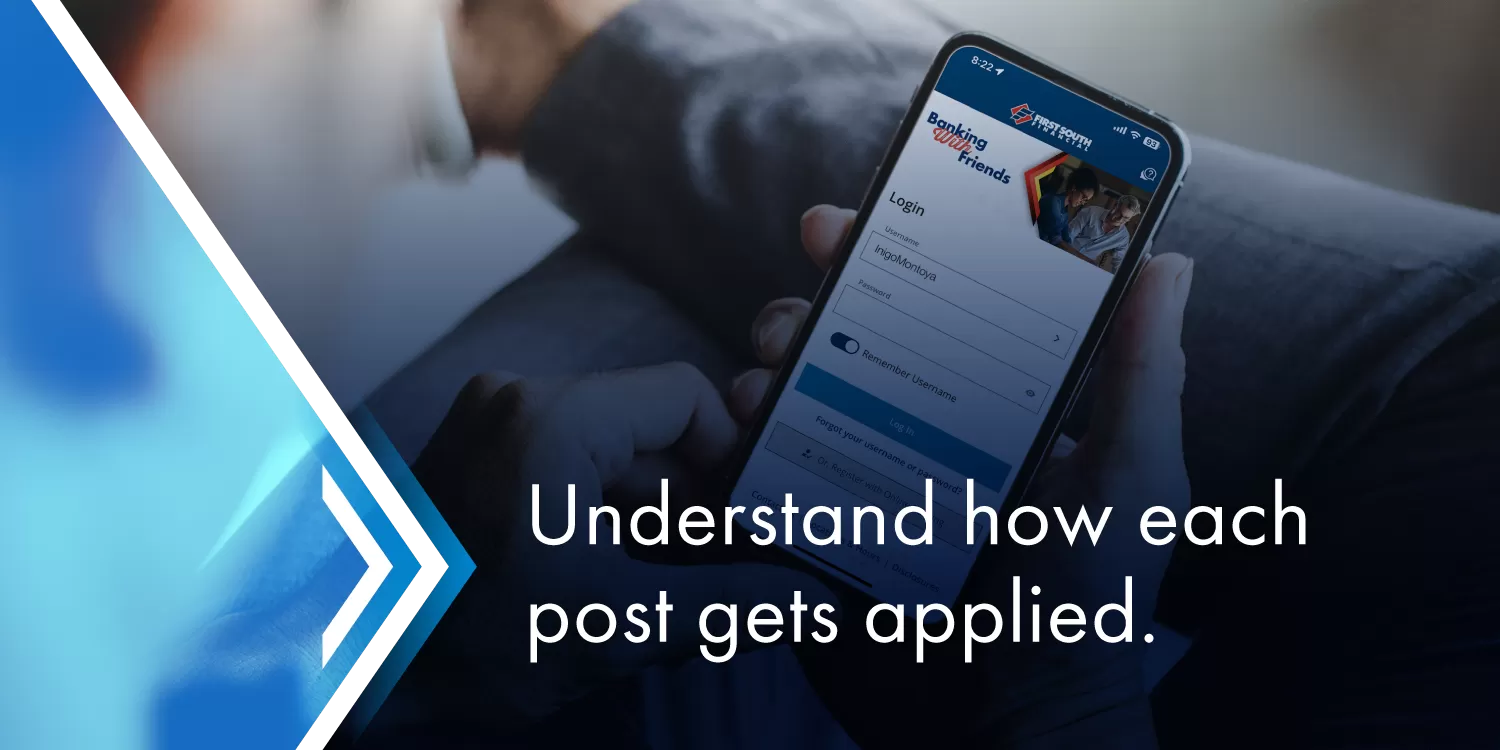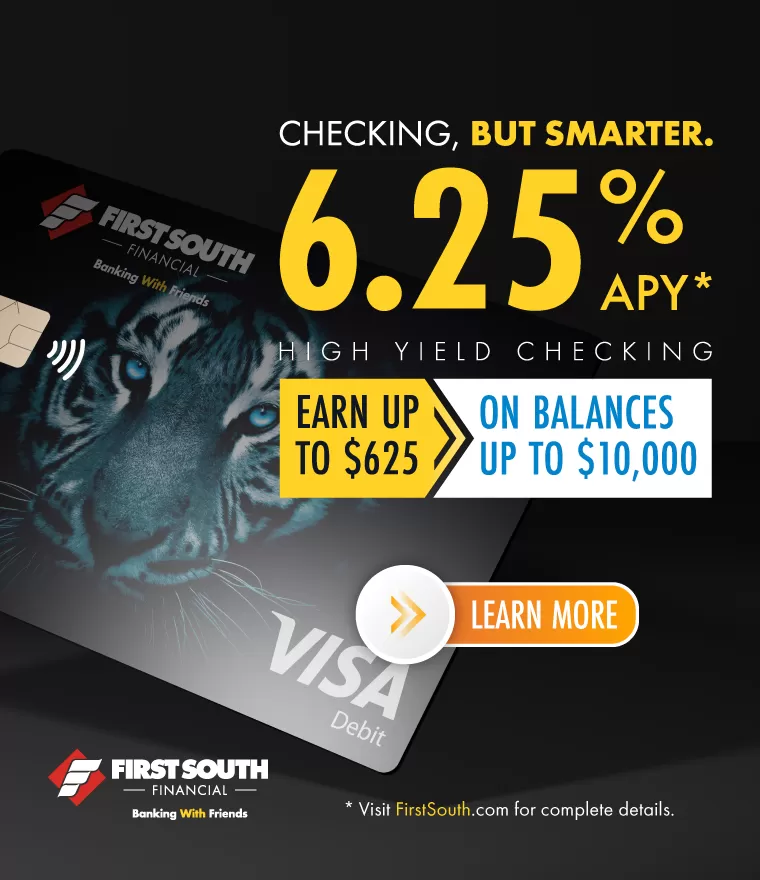
How Transactions Post to Your Account
Basically, there are two types of transactions that affect your account: credits (deposits of money into your account) and debits (payments out of your account). It is important to understand how each is applied to your account so that you know how much money you have and how much is available to you at any given time. This section explains generally how and when we post transactions to your account.
Deposits are generally added to your account when we receive them. However, in some cases when you deposit a check, the full amount of the deposit may not be available to you at the time of deposit. Please refer to the Funds Availability Policy Disclosure provided at the time you opened your account for details regarding the timing and availability of funds from deposits.
Debits
There are several types of debit transactions. Common debit transactions are generally described below. Keep in mind that there are many ways transactions are presented for payment by merchants, and we are not necessarily in control of when transactions are received.
Checks
When you write a check, it is processed through the Federal Reserve System. We receive data files of cashed checks from the Federal Reserve each day. The checks drawn on your account are compiled from these data files and paid each day. We process checks from highest to lowest.
ACH Payments
We receive data files every day from the Federal Reserve with Automated Clearing House (ACH) transactions. These include, for example, automatic bill payments you have authorized. ACH transactions for your account are posted throughout the day in the following order:
- ACH credit items
- ACH debit items from lowest to highest
PIN-Based Debit Card Purchase Transactions
These are purchase transactions using your debit card for which a merchant may require you to enter your personal identification number (PIN) at the time of sale. They are processed through a PIN debit network. These transactions are similar to ATM withdrawal transactions because the money is usually deducted from your account immediately at the time of the transaction. However, depending on the merchant, a PIN-based transaction may not be immediately presented for payment.
Signature-Based Debit Card Purchase Transactions
These are purchase transactions using your debit card that are processed through a signature-based network. Rather than entering a PIN, you typically sign for the purchase; however, merchants may not require your signature for certain transactions. Merchants may seek authorization for these types of transactions. The authorization request places a hold on funds in your account when the authorization is completed. The “authorization hold” will reduce your available balance by the amount authorized but will not affect your actual balance. The transaction is subsequently processed by the merchant and submitted to us for payment. This can happen hours or sometimes days after the transaction, depending on the merchant and its payment processor. These payment requests are received in real time throughout the day and are posted to your account when they are received.
The amount of an authorization hold may differ from the actual payment because the final transaction amount may not yet be known to the merchant when you present your card for payment. For example, if you use your debit card at a restaurant, a hold will be placed in an amount equal to the bill presented to you; but when the transaction posts, it will include any tip that you may have added to the bill. This may also be the case where you present your debit card for payment at gas stations, hotels and certain other retail establishments. We cannot control how much a merchant asks us to authorize, or when a merchant submits a transaction for payment.
This is a general description of certain types of transactions. These practices may change, and we reserve the right to pay items in any order we choose as permitted by law.
Overdraft Privilege should only be utilized as a last resort. First time users that voluntarily opted into the Overdraft Privilege program and did not fully understand how the program works may receive a full fee reimbursement and be removed from the program permanently. If you feel you should not have been charged a fee, we may be able to assist; please contact us so that we may review your account history and discuss available options with you. For support or financial counseling, please visit our Overdraft Options page or call us at 901-380-7400.
If you have questions regarding account transactions or Overdraft Privilege, please contact us at 901-380-7400, at mail@firstsouth.com, or visit any one of our banking centers.
Go to main navigation





